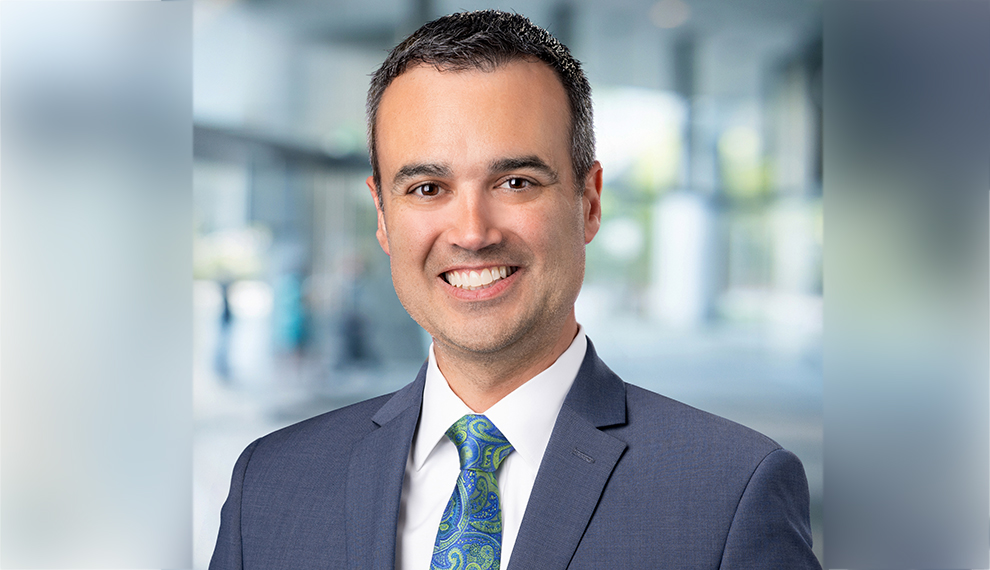With the digital era constantly evolving and thus posing new challenges for businesses and the legal sector alike, William shares with us how technology and the internet have impacted copyright law.
New technologies provide new tools for creative expression and new vehicles for sharing those works[1]. But sometimes they also disrupt existing copyright regimes. How so?
New technologies always disrupt the existing copyright regime. Prior to the printing press, society didn’t have to give much thought to the legal ramifications related to the widespread copying of books or manuscripts. Before the invention of the camera or the phonograph, we had no occasion to consider how to protect against the copying of a “photograph” or a “record.” VCRs gave Hollywood studios a headache for a while, and, later, Napster did the same to record labels.
Now here’s the thing: Congress should take a new look at the DMCA in 2020, but we should accept (and plan for) the eventuality we will need to do so again in 2025.
This potential tension will always exist. The simple reality is this: technology advances very quickly, sometimes exponentially. The law does not. It evolves slowly, after great consideration, lumbering along over a period of decades. I often joke that by the time some of the most important questions of our day are finally settled, it won’t matter because society will have moved on to the next big thing. As a result, we may always find ourselves trying to fit the proverbial square peg in a round hole.
The Internet, and the quantity of legal issues it presents, is a good example. Years ago, when the Internet was more-or-less still in its infancy and well before the ubiquity of sites like YouTube, Facebook, and TikTok, Congress attempted to pass a new copyright law for the modern age by passing the Digital Millennium Copyright Act of 1998 (“DMCA”). But it took no time at all before critics started saying it was outdated and broken. In fact, since 2016, there has been a significant amount of pressure on Congress to reconsider various provisions of the DMCA.
Now here’s the thing: Congress should take a new look at the DMCA in 2020, but we should accept (and plan for) the eventuality we will need to do so again in 2025. Technology is moving very fast, and we shouldn’t assume that revisiting concepts of copyright law every 20 or 30 years will be sufficient.
Technology and internet connectivity have radically changed the production of cultural material; how has this impacted copyright law?
I don’t think there’s enough space in this article for me to discuss the wide-ranging impact!
Honestly, the amount of content that is out there in the world is staggering. And, as we increase internet connectivity and bring more communities online, it will only increase.
As I alluded to previously, advances in technology can increase the type of protectable works. The first U.S. copyright law (passed in 1790) protected books, maps, and charts, but that was it. By 1909, copyright protection was expanded to also cover musical compositions, lectures and sermons, periodicals, works of art, drawings of a scientific or technical nature, photographs, and pictorial illustrations. Today, copyright protection also extends to computer software and architecture.
Internet connectivity increases the volume of publicly available protectable works. Fifty years ago, you might have gathered around a projector at your neighbour’s house to watch a home movie about their most recent vacation—and that would have been enough to satiate your desire for home movies for the next six months. Now, on any given day, we might watch dozens of YouTube videos filmed on a GoPro by “professional vacationers” who travel the world and then use YouTube to monetise their videos and finance their trips. That’s just one website on which people watch about 5 billion videos every single day. At last count, there were about 1.8 billion websites, and the number grows every second.
But here’s another thing: we’re not just seeing an increase in “amateur” material. We are starting to see a huge increase in professionally created content as well. A couple of decades ago, there was a perception that only the major Hollywood movie studios could produce a high-quality motion picture. Today, we have dozens of studios cranking out tons of content. Digital platforms like HBO, Netflix, Hulu, and Amazon, once focused primarily if not exclusively on distribution, are now just as likely to invest in content creation.
Honestly, the amount of content that is out there in the world is staggering. And, as we increase internet connectivity and bring more communities online, it will only increase.
Is it more challenging for companies to copyright their work in the digital age?
The mechanics of protecting a particular work haven’t changed dramatically so, in that respect, the answer is “no”. In terms of sheer volume, though, the answer may very well be “yes”.
Irrespective of how hard it is or isn’t to obtain a copyright registration in 2020, copyright protection and enforcement is certainly much tougher. Copyright holders constantly complain about having to play “Whack-A-Mole” with internet websites. That is to say, they frequently encounter the following scenario: their copyrighted work shows up on a website, so they act to take it down. No sooner has that happened than the same work shows up on another website. So they act again…and so it goes.
But we don’t have the same exposure or interaction to the underlying principles of intellectual property laws.
Unfortunately, I’m not sure there’s an easy solution for that particular problem. By and large, people have a very good understanding of what I refer to as “basic” legal principles—you can’t go around hitting other people, you can’t take stuff that doesn’t belong to you, you can’t build your house on someone else’s property, etc. I think this understanding is a function of at least two things. First, some of these principles—like not hitting others—are so fundamental to the social contract that we teach these principles to our children from an early age, and we continue to reinforce them as they get older. In addition, with respect to some of these situations, it’s easy for us to see the harm or damage we might cause the other person, i.e., if I go around hitting other people, the other person will feel pain.
But we don’t have the same exposure or interaction to the underlying principles of intellectual property laws. When our kindergartener tries to copy a picture from a colouring book, we encourage their freehand drawing—we don’t chastise them for “copying.” As another example, we teach our kids to play musical instruments by having them learn to play already existing, copyrighted works. In addition, it is conceptually harder to understand the harm in infringing someone’s “intellectual” property. After all, if I see a picture of a beautiful sunset on the internet and then post that picture on my website so that others can also enjoy it, what’s the harm in that? Indeed, if I have a very popular website, one could argue I am doing the photographer a favour—giving that picture more exposure it would have otherwise received and increasing that person’s notoriety.
That’s a long-winded way of saying we live in a world that doesn’t have a full appreciation for what is “right” and what is “wrong” when it comes to IP law, and I have no reason to believe that’s going to change. The youngest among us spend the most time online. Why would they have any better understanding of IP than, say, someone who is an adult with business experience?
With the speed of culture accelerated by digital technology, do you think it is imperative that protection periods be shortened? What impact would this have?
So, shortening the protection period to something like 14 years, which is a number I have seen, could represent a huge blow to a U.S. citizen.
At the risk of sounding like a lawyer, this is a complex, multi-faceted issue. Unfortunately, even if we concluded it was a good idea, it’s not as easy as saying “let’s have a shorter protection period.” There are international treaties and conventions which provide for a certain minimum protection period, and the U.S. is a signatory to those. So, first, we would have to pull out from these agreements.
Assuming we were okay with that kind of international move, we would then have to determine whether shortening the protection period would be a net positive or a net negative. Some argue shortening the protection period is a net positive because it will lead to society having easier access to a greater catalogue of creative works. Others would point out that shortening the protection period might put U.S. creators at a disadvantage vis-à-vis international creators who would continue to benefit from longer protection periods. By and large, most countries provide a protection period for the life of the creator plus 50 or 70 years. So, shortening the protection period to something like 14 years, which is a number I have seen, could represent a huge blow to a U.S. citizen.
That’s not to say we shouldn’t be having this conversation on a global scale. The time periods we are talking about can be very long. For example, if you have a 30-year-old who lives to be 80, we are going to protect his work for 120 years (50 years during his life and another 70 on top of that). When you compare that to the protection period for a patent (20 years), it might lead you to wonder why copyrights are protected for so long. This disparity would seem to suggest we value useful inventions more than creative works. We think microprocessors are so useful we want them available to the public relatively quickly. A unique sonnet? We can wait 120 years for that.
Has the digital era impacted IP litigation we see today?
Of course, that leads one to wonder whether we need to reconceptualise how courts handle IP litigation.
Undoubtedly. We are creating intellectual property at rates heretofore unforeseen. It only stands to reason we are going to protect that IP at significantly higher rates. I recently saw a study indicating that corporate spending on IP litigation has doubled in the last 15 years and, to be honest, I was surprised litigation costs had only doubled in that time period. I don’t see any reason why that spend will decrease any time soon. We already have a lot of IP litigation in the U.S., but it’s really starting to take off in other countries. Companies may find themselves fighting on multiple fronts, foreign and domestic, all the time.
Of course, that leads one to wonder whether we need to reconceptualise how courts handle IP litigation. For example, every day I see dozens of copyright lawsuits filed across the country by photographers claiming one or more of their photos was inappropriately used on the defendant’s website. Because the Copyright Act provides for exclusive federal jurisdiction, all of these suits are filed in a federal court. But is it really a good idea to clog the dockets of our already overworked federal judiciary with hundreds of these cases? Perhaps it would be better to create a centralised “copyright court” with judges well-versed in copyright law where all such disputes would be filed. In addition, we could send copyright appeals to the Federal Circuit. That would free up district and appellate court dockets across the country. Fifty years ago, an idea like that might face real resistance from people arguing it was too costly to litigate in a forum they couldn’t drive to, but, in 2020, I don’t think that argument is particularly persuasive. With electronic filings, video conferences, and airplanes, people could probably litigate in a “far away” forum just as easily as they could in their backyard.
My advice is the same to all lawyers (whether IP or otherwise). In all of your interactions and in every form of communication, whether oral or written, formal or informal, eschew obfuscation, espouse elucidation.
Donald Trump is expected to order a review of a federal law known as Section 230, which protects internet companies like Facebook, Twitter and Alphabet’s Google from being responsible for the material posted by users[2]. How feasible is this, in your opinion?
I suspect Congress and several federal agencies will be taking a hard look at Section 230 and Section 230 compliance this year. The irony is that criticism for Section 230 may be one of the few remaining bipartisan issues. Trump recently issued his Executive Order as a result of Twitter labelling two of his tweets as “potentially misleading”, but Nancy Pelosi hinted at removing Section 230’s protections back in April 2019. And Joe Biden is on record saying Section 230 should be revoked “immediately”.
The 2020 reaction to Section 230 is not surprising. When the law was originally passed, there was a real concern that holding internet platforms liable for the statements of third parties would cripple them at a time when the internet was still in its nascent stages. But, now we have a more mature internet, and Congress is starting to wonder whether it swung the pendulum too far in the other direction-i.e., whether it afforded these platforms too much protection. If Congress concludes the answer is “yes” (though there are arguments the answer is still “no”), I would suspect they would amend the relevant language as opposed to repealing it altogether. I think we all prefer the pendulum sit in the middle, at rest, rather than vacillating widely between two extremes every twenty years.
William Delgado
I graduated from the University of Oklahoma with a degree in electrical engineering in 1999, but, having interned at a tech company throughout college, I had significant reservations about a career in engineering. After a period of introspection, I decided to go to law school in New York City. I was extremely fortunate to have hit the employment market at the perfect time as law school students with engineering degrees were a sought-after commodity at the time. After three fantastic years of law school, I moved out West to Los Angeles to become an IP litigator.
After a brief but extremely rewarding stint in Big Law and then a much longer but equally rewarding stint at a Big Law spinoff, in May 2019, I became one of three founding partners of DTO Law, a full-service boutique with offices in Los Angeles, San Francisco, and Louisville (KY). In terms of rewarding experiences, though, this last stop takes the cake. I could not be prouder of the team we have assembled at DTO. I am fortunate to be surrounded by amazingly talented colleagues who regularly achieve outstanding results for a wide variety of clients—from start-ups to those who regularly appear in the Fortune 500.
At this point in my career as a litigator, I have dabbled in just about every area of law. At present, though, my practice primarily focuses on intellectual property and class action defence.
[1] https://blogs.loc.gov/copyright/2017/05/copyright-law-and-new-technologies-a-long-and-complex-relationship/
[2] https://www.reuters.com/article/us-twitter-trump-executive-order-explain/explainer-whats-in-the-law-protecting-internet-companies-and-can-trump-change-it-idUSKBN23434V





















